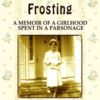As hard as it may seem now to accept that painful memories can heal if you face them, I hope you will trust me when I say that memoir writing—done well—will be therapeutic.
The forgotten memory
It is perhaps inevitable, when you write your memoir, that painful memories you had “forgotten” will resurface. These may stem from prolonged poverty, childhood humiliation, abuse, abandonment, addiction, etc. But, it doesn’t matter what the source of your painful memories is: you are weighed down by these memories and memoir writing is something you can do to alleviate that pain and to move on with your life.
Or, you may already be aware of your painful memories but are unwilling to evoke them, to re-live with them long enough to write about them. Perhaps they are still too difficult to linger with, or perhaps you are afraid you will not be able to handle the pain if it were to come back and you will become stuck again in that part of your life. This is, of course, a real concern—although becoming stuck again is by no means a probability.
Certainly psychological therapy can be an effective tool for gaining better emotional health. If therapy calls out to you, by all means pursue it. I would say that, if you are terrorized at the prospect of reliving an event, you would be wise to seek professional counseling.
There is another avenue that has been useful to me. Painful memories can heal when you submit them to the process of writing.
The incapacitating memory
If a memory is so difficult that you are still afraid of it, take this as an indication you haven’t gotten over it yet—and it will be such a relief when you do. If a memory is still sapping your emotional energy—whether you are consciously aware of it or not, memoir writing may be very healing for you.
Many of our coaching and editing clients have said to us, “Writing has proven to be therapeutic. It costs so much less than counseling, and in the end, you have a book of memoirs.”
In conjunction with this category, you will do well to read the articles about telling the truth in a memoir. It is a companion section as truth and pain are travel buddies from way back.
The many articles below will help you to work with and through painful memories by writing through them—thoughtfully and sensitively.
In conclusion
The following articles do not provide a “magic bullet,” but together they can point you in a direction you need to go in to deal with your pain. If painful memories are sapping your emotional energy—whether you are consciously aware of it or not, you will find these memoir-writing posts healing.

Tell the painful truth in a memoir, or why washing family laundry in public is difficult
It is not always easy to tell the painful truth in a memoir—in fact, it usually isn’t.
Anyone writing a memoir must face the challenge of how to tell the truth of his or her story at the same time as one does not want to cause harm or pain. I have written elsewhere about telling the truth in a memoir. Those posts have been more on the objective level—the theory of telling the truth.
A Sugary Frosting has brought me face to face – personally – with the challenge of telling the truth. I’m not a great fan of “silly me thinking I knew how to tell the truth before I had to face the challenge!” so this is not going there. No, this piece is simply an application of what I already knew and have written about.
A Sugary Frosting is a book that I co-authored with Martha Blowen, my deceased spouse. The title to the book came from Martha’s journals. There was an entry in which she referred to her childhood as being A Sugary Frosting with life “having to be sweet and sticky.” This definitely was part of the painful truth. [Free Membership required to read more. See below. ]
We'd love to have you access this content. It's in our members-only area, but you're in luck: becoming a member is easy and it's free.
Already a Member?
Not a Member Yet?

Seven Reasons for Writing a More Personal Memoir
You want to write your memoir, but you resist getting too personal, going in too deep. In short, writing a more personal memoir.
Your guarded secret that you wanted to have your own business one day or your hope that your father would apologize eventually for his denigration of you—this has happened and it has had a great impact on you. Your even deeper secrets—the sexual orientation that you dared not reveal or your negative self-concept—surely this can’t be the subject of a memoir. How would you live this down? Isn’t it better to stick with the facts and dates? And aren’t these inner realities too personal to impose on others?
1) The more personal your memoir the more universal it is.
[Free Membership required to read more. See below. ]
We'd love to have you access this content. It's in our members-only area, but you're in luck: becoming a member is easy and it's free.
Already a Member?
Not a Member Yet?

Writing a First Memoir Draft Was Daunting
At age 54, I wrote the first 56,500 words of my first memoir draft of my book, Showbiz Survival Memoir.
It was cathartic writing a first memoir draft and getting it out of me. Honestly, it was a bit grueling though, — emotionally and even physically — to relive some of the most painful times in my life. [Free Membership required to read more. See below. ]
We'd love to have you access this content. It's in our members-only area, but you're in luck: becoming a member is easy and it's free.
Already a Member?
Not a Member Yet?

How Writing to Ease Pain—Even of a Son’s Murder
Even before I found out my son had been murdered, I began writing about what I was experiencing as we waited for word of what had happened.
